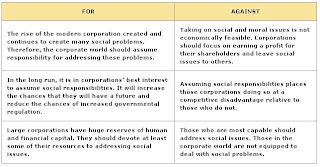Add-on: "Right to Privacy"
This is an add-on to the "Right to Privacy" essay in the e-book. Not a necessary read though.
Contrary to the prime minister's recent assurances - and despite valid concerns from corporate leaders regarding phone tapping in light of the Niira Radia tapes - it is astounding that the government has asked telecom companies to enhance their tapping capabilities. The Department of Telecommunications has asked operators to put in place systems that would enable them to tap 1 per cent of their subscribers simultaneously and make provisions for as much as 5 per cent - at least 35 million subscribers according to conservative estimates. If followed through, the directive will have the effect of turning the country into a surveillance society. Given the grave implications, increased phone-tapping powers should not be granted when reason demands a healthy balance between privacy and security concerns.
Contrary to the prime minister's recent assurances - and despite valid concerns from corporate leaders regarding phone tapping in light of the Niira Radia tapes - it is astounding that the government has asked telecom companies to enhance their tapping capabilities. The Department of Telecommunications has asked operators to put in place systems that would enable them to tap 1 per cent of their subscribers simultaneously and make provisions for as much as 5 per cent - at least 35 million subscribers according to conservative estimates. If followed through, the directive will have the effect of turning the country into a surveillance society. Given the grave implications, increased phone-tapping powers should not be granted when reason demands a healthy balance between privacy and security concerns.
What is worse is that the directive demands that private telecom companies provide the infrastructure needed for surveillance. This is a serious blow to accountability. In most countries phone-tapping technology is developed, controlled and implemented by the government, which at the end of the day is accountable to the people. However, if the primary responsibility of putting in place such systems were to be with private companies, it would leave the door wide open for manipulation and indiscriminate large-scale tapping. Even today it is unclear who leaked the Radia tapes and what the real motivation was. Unbridled powers to tap phones would not only make it difficult for corporations to conduct their affairs with any degree of confidentiality, but also hurt foreign investment in India.
The government's authority to tap phones draws its legal validity from the provisions of the Indian Telegraph Act. Following the landmark PUCL vs Union of India case in 1996, the Supreme Court had laid down certain procedural guidelines to conduct legal interceptions. This included making the home secretary of the union and state governments the sanctioning authority. It also provided for a high-level review committee to investigate the relevance of such orders. But such caution has been thrown to winds in recent directives from government bodies as well as phone tapping incidents that have come to light.
The right to privacy is one of the most fundamental entitlements of a democratic society. Diluting it is tantamount to moving towards a totalitarian regime reminiscent of the Soviet Union. Stringent safeguards are needed to ensure that phone taps are carried out in exceptional circumstances with adequate checks and balances. Otherwise we are heading, as Ratan Tata recently suggested, towards a banana republic.

Comments
Post a Comment